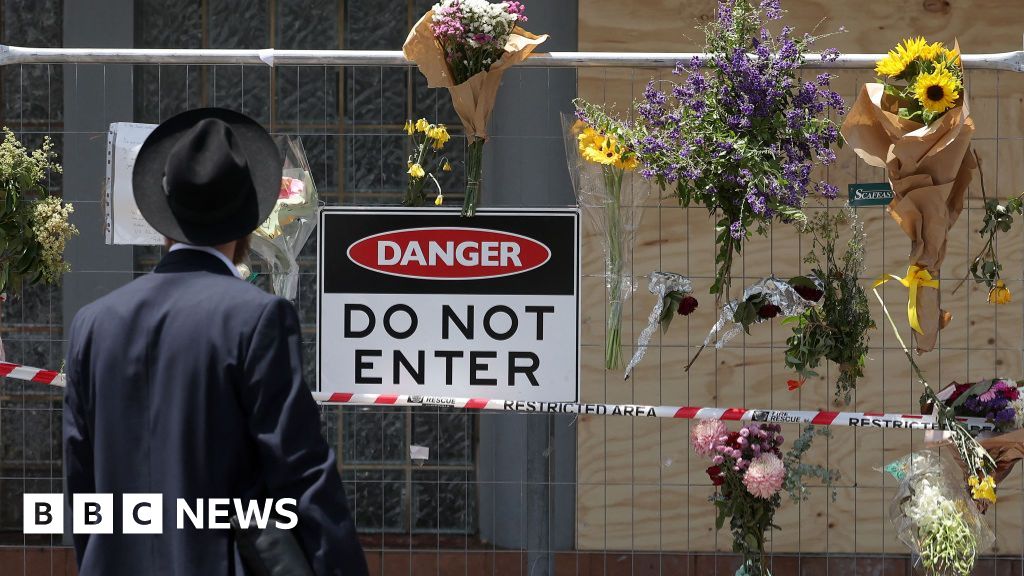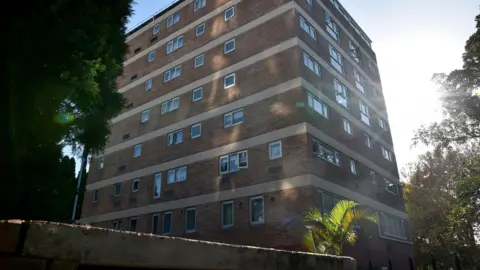Australia has given Iran's ambassador seven days to leave the country after alleging the country's government directed antisemitic attacks in Sydney and Melbourne. Intelligence services linked Iran to an arson attack on a cafe in Sydney in October last year, and another on a synagogue in Melbourne in December, Prime Minister Anthony Albanese told a press conference on Tuesday. Albanese added the two incidents were 'attempts to undermine social cohesion and sow discord in our community'. Ambassador Ahmad Sadeghi and three other officials have been ordered to leave Australia, which has withdrawn its own diplomats from Tehran. Iran has 'absolutely rejected' the allegations.
Iran's foreign ministry spokesman added the decision to expel their envoy was 'driven by Australia's domestic policies'. However, Australian Security Intelligence Organisation (Asio) chief Mike Burgess said his teams had uncovered links 'between the alleged crimes and the commanders in Iran's Islamic Revolutionary Guard Corps, the IRGC', following a 'painstaking', months-long investigation. He added that IRGC had 'used a complex web of proxies to hide its involvement' in the attacks on the Lewis Continental Kitchen in Sydney on 20 October, and Melbourne's Adass Israel Synagogue on 6 December.
Australia's intelligence services had also found evidence Iran was likely to be behind other antisemitic incidents in Australia, which has seen attacks on Jewish schools, homes, vehicles and synagogues since the 7 October 2023 attack on Israel by Hamas, Iran's ally, and the ensuing war in Gaza. The findings revealed on Tuesday were 'deeply disturbing', Albanese said, describing the two incidents as 'extraordinary and dangerous acts of aggression'. Foreign Minister Penny Wong stated it was the first time since World War Two that Australia had expelled an ambassador, reinforcing the severity of the situation.
Iran's foreign ministry spokesman added the decision to expel their envoy was 'driven by Australia's domestic policies'. However, Australian Security Intelligence Organisation (Asio) chief Mike Burgess said his teams had uncovered links 'between the alleged crimes and the commanders in Iran's Islamic Revolutionary Guard Corps, the IRGC', following a 'painstaking', months-long investigation. He added that IRGC had 'used a complex web of proxies to hide its involvement' in the attacks on the Lewis Continental Kitchen in Sydney on 20 October, and Melbourne's Adass Israel Synagogue on 6 December.
Australia's intelligence services had also found evidence Iran was likely to be behind other antisemitic incidents in Australia, which has seen attacks on Jewish schools, homes, vehicles and synagogues since the 7 October 2023 attack on Israel by Hamas, Iran's ally, and the ensuing war in Gaza. The findings revealed on Tuesday were 'deeply disturbing', Albanese said, describing the two incidents as 'extraordinary and dangerous acts of aggression'. Foreign Minister Penny Wong stated it was the first time since World War Two that Australia had expelled an ambassador, reinforcing the severity of the situation.


















